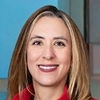Welcome to BARBRI, the trusted global leader in legal education. Continue to access the same expert-led Strafford CLE and CPE webinars you know and value. Plus, explore professional skills courses and more.
About the Course
Introduction
This CLE course will provide bankruptcy and lender counsel with an overview of the enforceability of make-whole or no-call provisions after In re The Hertz Corp., No 23-1169 (3d Cir., Sept. 10, 2024), and the solvent debtor exception. The panel will discuss the differences between the rights of unsecured creditors under Bankruptcy Code Section 502 and the options of secured creditors under Section 506(b). The panel will also discuss options outside the Fifth, Third, and Ninth Circuits.
Description
Make-whole provisions, or yield premiums, are intended to protect the fixed-rate noteholder's rights by requiring compensation for the damage caused by the issuer's early payment in a lower-rate market. Three circuits have held that a prepayment premium to unsecured creditors, as a matter of law, is disallowable as "unmatured interest" under Section 502(b)(2).
The unsecured creditors in Hertz, Ultra Petroleum Corp. v. Ad Hoc Committee of OpCo Unsecured Creditors (In re Ultra Petroleum Corp.), No. 21-20008 (5th Cir. Oct. 14, 2022), and Ad Hoc Comm. of Holders of Trade Claims v. Pac. Gas & Elec. Co. (In re PG&E Corp.), 46 F.4th 1047 (9th Cir. 2022), cert. denied, 143 S.Ct. 2492 (2023), were saved by the solvent debtor exception. Where no such exception exists, unsecured creditors may be able to devise creative workarounds for Section 502 to negate the premise that the payment is the equivalent of unmatured interest, for example by attempting to show that the make-whole premium has matured before filing.
Secured, especially oversecured creditors, may have more options and courts in other circuits may have different positions. The different rights of secured creditors under the Bankruptcy Code may offer a different result, especially taking into account that Hertz, Ultra, and PG&E dealt with unsecured creditors.
Listen as our authoritative panel analyzes various theories employed by bankruptcy courts in considering the enforceability of make-whole provisions and the impact of Hertz, Ultra, and PG&E. The panel will review recent bankruptcy case law developments and offer best practices for lenders to protect these claims.
Presented By

Ms. Khan is a practiced bankruptcy litigator and transactional attorney who has extensive experience in large-scale liquidations and restructurings. She has represented creditors in complex Chapter 11 bankruptcy cases in industries such as retail, automotive, financial and professional services. She has also litigated a wide range of matters in Chapter 11 and SIPA cases. She actively publishes and speaks on cutting-edge legal developments in the restructuring field.

Ms. Kweskin is a partner in Mayer Brown's New York office and a member of the Global Restructuring practice. She advises clients, with a special focus on lenders, on all stages of corporate restructurings (both in and out-of-court) with significant experience with forbearance agreements, foreclosures, restructuring support agreements, debtor-in-possession financing, 363 sales and chapter 11 plans. Ms. Kweskin frequently litigates bankruptcy-related disputes concerning valuation, make-whole claims, inter-creditor issues, fraudulent transfers, recharacterization, veil piercing, and breaches of fiduciary duty. In addition to lenders, she represents stakeholders across the capital structure including debtors, distressed acquirers, official committees of unsecured creditors, litigation financiers and landlords.
-
This 90-minute webinar is eligible in most states for 1.5 CLE credits.
-
Live Online
On Demand
Date + Time
- event
Wednesday, May 28, 2025
- schedule
1:00 p.m. ET./10:00 a.m. PT
- Overview
- Make-whole provisions in fixed-rate lending
- The concept and basic formula
- Key decisions
- In re The Hertz Corp., No 23-1169 (3d Cir., Sept. 10, 2024)
- Ultra Petroleum Corp. v. Ad Hoc Committee of OpCo Unsecured Creditors (In re Ultra Petroleum Corp.), No. 21-20008 (5th Cir. Oct. 14, 2022)
- Ad Hoc Comm. of Holders of Trade Claims v. Pac. Gas & Elec. Co. (In re PG&E Corp.), 46 F.4th 1047 (9th Cir. 2022), cert. denied, 143 S.Ct. 2492 (2023)
- Other circuits
- Enforceability as a matter of state law
- No-call provisions: enforceability
- Critical issues in bankruptcy involving make-wholes (and no-calls) under the documents
- Is it triggered?
- How has the drafting changed in response to recent decisions?
- Critical issues of bankruptcy law
- Is the claim disallowed as "unmatured interest"?
- May the class be "unimpaired" and the claim disallowed?
- How can the solvent debtor exception save make-wholes?
The panel will review these and other key issues:
- Will disallowance of make-whole claims under Section 502(b)(2) affect secured creditors' seeking make-whole payments pursuant to the exceptions under Section 506(b)?
- Is the impairment aspect of the ruling consistent with the statute? Could it be subject to further challenge in other circuits?
- What are best practices for counsel to lenders and bondholders to protect entitlement to make-whole premiums?
- How relevant are the methods of calculating a make whole payment in finding that it amounts or unmatured interest?
Unlimited access to premium CLE courses:
- Annual access
- Available live and on-demand
- Best for attorneys and legal professionals
Unlimited access to premium CPE courses.:
- Annual access
- Available live and on-demand
- Best for CPAs and tax professionals
Unlimited access to premium CLE, CPE, Professional Skills and Practice-Ready courses.:
- Annual access
- Available live and on-demand
- Best for legal, accounting, and tax professionals
Unlimited access to Professional Skills and Practice-Ready courses:
- Annual access
- Available on-demand
- Best for new attorneys
Related Courses
Recommended Resources

Transforming CLE from a Requirement to a Career Advantage
- Learning & Development
- Career Advancement
- Talent Development

Beyond Law School: Tackling the Realities of Modern Legal Practice
- Learning & Development
- Business & Professional Skills
- Career Advancement


